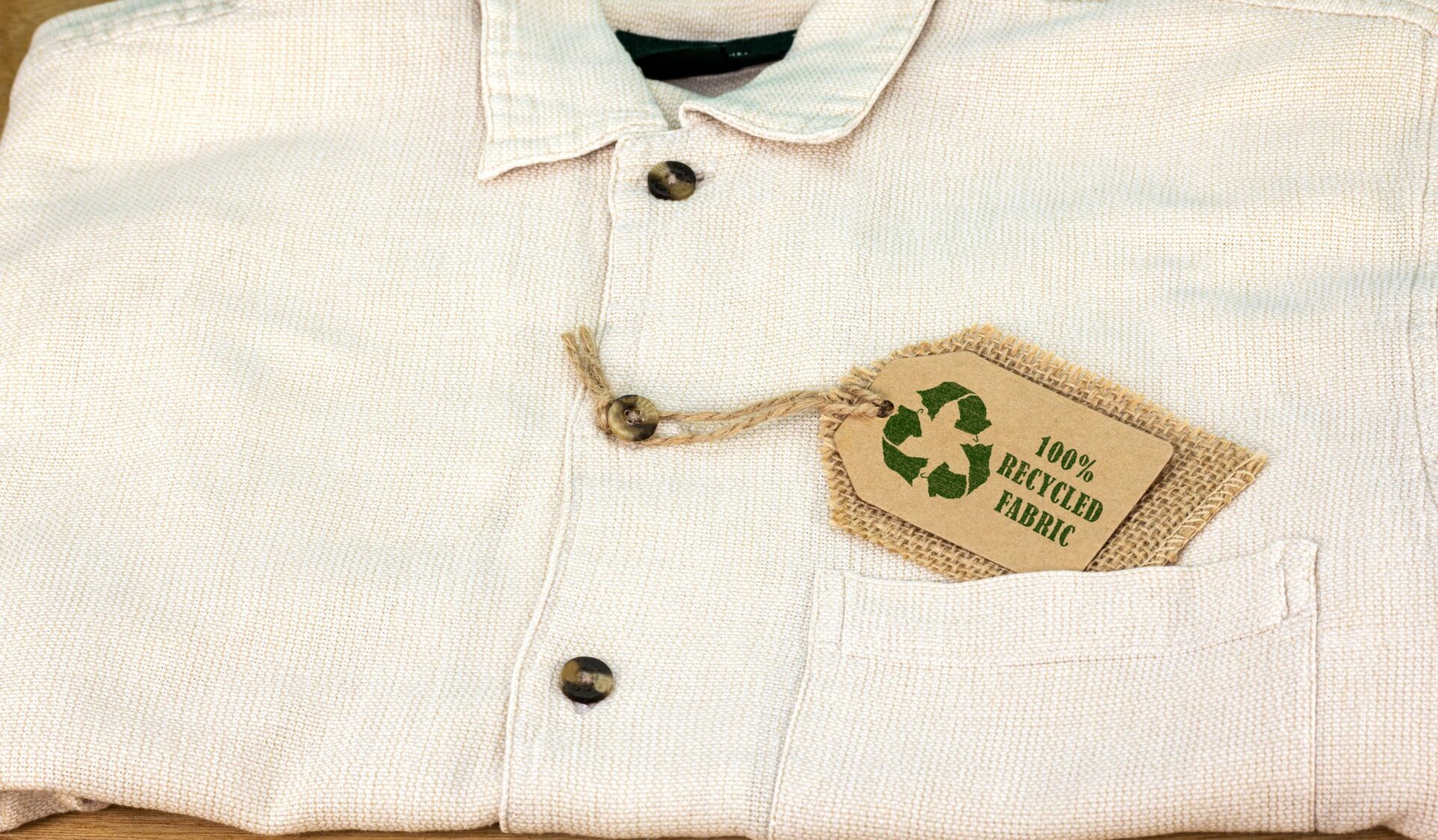Sustainability in the Fashion World: Will the Pandemic Help Achieve This?

The pandemic has drastically impacted the fashion industry over the course of 2020. With non-essential stores being forced to close temporarily, the relationship between the fashion industry, clothing stores, and consumers has been put to the test. In comparison to 2019, retail sales of clothing decreased by 27 per cent in 2020 according to the Office for National Statistics. As we see life gradually return to somewhat normal in the UK, the impact of lockdown measures continues to affect this sector.
As for concerns that the nation share, the pandemic has led us to reprioritise them. During the public health crisis, it was revealed to us how unsustainable our current practices are, and this was reflected through how much reduction there was in waste and emissions as the nation was forced to stay at home. This helped highlight that, when life post-pandemic arrives, we must continue to find more ethical and eco-friendly ways to produce our products and provide our services.
Luckily, changes in consumer behaviour have been noticed by businesses. When it comes to shopping sustainably, indexes find that 88 per cent of UK shoppers want brands to help them achieve this. Plus, 53 per cent of people admit that they feel better when shopping sustainably.
To help win back their customers in a competitive market, fashion brands must set sustainability as a priority in the production process. Here, we discuss what must be done to help make the fashion industry more sustainable and how the pandemic is helping drive this change.
The environmental impact of the fast fashion industry
Despite fast fashion being a cheaper option for consumers, the effect it is having on the environment is causing more bad than good. As for how it is unsustainable, the short lifespan of these lower-quality clothes and excessive production of such has led to an alarming carbon fashion footprint to be created.
Clothing production has doubled since 2000. Although people are only keeping their clothes for half the amount of time they have in previous years, they are buying 60 per cent more garments.
The major reason for this is a failing quality within the fashion industry and an oversaturation of brand collections. In 2000, only two collections per year were usually offered by most fashion brands. Now, fashion companies such as H&M and Zara produce 24 collections per year.
Another indicator that quality has been affected is through using plastic textiles such as polyester. Although the material can reduce breathability and comfortability, it prevents shrinkage, avoids creases, and increases durability. Notably, it helps cut costs on production too.
In many circumstances, the use of polyester can be justified, with it currently being used in around 60 per cent of all garments. However, producing it requires triple the amount of carbon emissions than cotton production does. Furthermore, polyester cannot break down in the ocean.
The uncontrollable nature of the fashion industry has been slowed down by the pandemic due to a decrease in demand for clothing as well as a hold on working restrictions. Not only that, but now shopping sustainably has become important to many people, causing a shift away from low-cost and low-quality clothing items. In fact, 24 per cent of Brits say they wear some items of clothing for over ten years, and 25.4 per cent say they use everyday items for more than two years before purchasing new ones.
Fashion businesses need to recognise that consumers don’t necessarily want low-cost clothing, but instead want their products to be biodegradable, higher quality, long-lasting, and cause less damage to the environment.
Plastic and postage
Online ordering and home delivery services have soared in the fashion industry during the pandemic. With this said, an unnecessary amount of plastic is usually involved in the handling and shipping process of home deliveries – all or most of which tends to be thrown away straight after.
Plastic packaging accounts for 70 per cent of the UK’s total plastic waste, says waste charity WRAP. The amount of this waste that gets recycled stands at just 4 per cent.
Polybags are what is often used when ordering clothes online. This type of plastic can take up to 1,000 years to decompose and makes up approximately 34 per cent of the global plastic market.
However, there are other sustainable options available. In terms of packaging materials, cardboard and paper are the best choices. Not only are they biodegradable and a renewable source, but they are great for shipping and transport.
As for another potential alternative, starch-based carrier bags could be used. These bags are made from potato starch and have similarities to the plastic equivalent, such as being able to protect clothing. The noticeable difference, however, is that the bags don’t leave any harmful residue after they break down in composting conditions in only 12 weeks.
The main obstacle in the way of using these sustainable alternatives comes down to cost. In comparison to the price of biodegradable materials such as cardboard, polybags are just a fraction of the price. However, with consumer attitudes towards sustainability in the fashion industry changing, these investments may be worth the extra cost in the years to come.
When it comes to eco-friendly products, one consumer index finds that 59 per cent of European consumers would pay more for them. This suggests that even if a higher price was charged to consumers for more sustainable packaging, this may be enough to persuade consumers to change who they shop with.
For the sake of the environment, it is worth paying the added costs of more sustainable packaging to help avoid the use of harmful waste materials such as plastic.
Rethinking sustainability
The fashion industry has a new opportunity to rethink its current business operations and processes as lockdown restrictions begin to ease. The industry is now faced with the challenges of proving that they can use their skills and abilities to help their customers become more sustainable and save the environment.
As we can see more of our friends and family now that venues are reopening, fashionable clothes will become a priority for people once again. From workwear clothing to our evening wear, our wardrobes help express who we are and our culture. This same concept applies to the clothes the fashion industry produces. Clothes should signify a culture of ethical manufacturing, high-quality products, and sustainability.
The pandemic has helped to highlight these concepts to the fashion industry and will hopefully help drive change towards sustainability. If not, businesses are likely to lose customers to their more sustainable competitors offering the same substitutes.
Other than fashion brands holding the responsibility to become more ethical and sustainable, it is also down to consumers to actively shop more sustainably too. We can do this by supporting brands that place the fight to save the environment at the heart of their operations.
Sustainable clothing is essential for all aspects of life, including at work. Contact Jermyn Street Design today and find out how we can supply you with sustainable workwear clothing, whether you need a bus driver uniform, delivery driver uniform, or warehouse workwear. As workwear suppliers, we’re helping your business meets its sustainable targets.
Sources
https://www.ons.gov.uk/businessindustryandtrade/retailindustry/timeseries/eagh/drsi
https://wrap.org.uk/taking-action/plastic-packaging
https://blog.globalwebindex.com/chart-of-the-week/sustainable-fashion/





